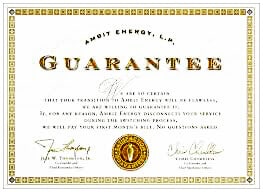You can now apply online for a Performance Bond – it only takes three (3) minutes! (Yep, we timed it.) Click here:
Or you Can download our Express Performance Bond Application (click to download form)
- Complete the form and email to [email protected]
- Be sure to include the Contract and Notice of Award letter (bid specs from the obligee).
- Send the bid results if you have them
What is a Warranty Bond?
A Warranty Bond, also known as a Maintenance Bond, is a type of contract bond that safeguards the owner of a completed construction project for a specified period. This ensures against potential issues with workmanship, materials, and design. Such a bond becomes an important ingredient when contractors may not be able to offer the best guarantees due to limited experiences or financial stability. This bond from Swiftbonds will cover any flaws for up to ten (10) years post-construction completion at nominal regular premiums.

Types of Warranty Bonds
Warranty bonds can be categorized into different types based on the specific requirements of the construction project. Some of the most common types of warranty bonds include:
- Construction Warranty Bonds: These bonds guarantee the quality of workmanship and materials used in a construction project. They ensure that the project is completed according to the contract specifications and that any defects or issues are addressed within a specified warranty period.
- Maintenance Warranty Bonds: These bonds provide a guarantee that the contractor will maintain the project for a specified period of time after completion. They ensure that the contractor will address any issues or defects that arise during the warranty period.
- Design Warranty Bonds: These bonds guarantee the design and engineering aspects of a construction project. They ensure that the design is sound and that any defects or issues are addressed within a specified warranty period.
How Much does a Warranty Bond Cost?
What should you expect to pay for a Warranty Surety Bond? Rates, much like credit scores, can fluctuate depending on the bond amount, type of work and risk involved. For high-risk jobs in the construction sector, you may be quoted 1-15%. This translates into $1 -$150 per 1000 worth borrowed!
With Swiftbonds, you can anticipate paying roughly 0.5-1% per year for the Warranty Bond on a typical completion bond in construction. This rate takes into account your credit score and the needed coverage.
Does a Standard Performance Bond Cover the Warranty Period?
Performance & Payment Bonds come with a one-year warranty managed by our expert team. Performance and payment bonds are often required for public construction projects to ensure contractors meet specific obligations and standards. Remember, these bonds respond directly to the contract itself. So ensure that it’s worth your while as premium rates include cost associated with these types of warranties.
For a warranty extension beyond the first year, an additional cost will be incurred.
Warranty Bond Guarantee – The photo represents a certificate of guarantee with a gold and white background.

A warranty bond ensures that the project will be repaired if there are any defects in materials or workmanship. This bond guarantees the repair of a project should there be defect in workmanship or materials, ensuring the project is completed according to specifications and on schedule.
What is the difference between a bond and a warranty?
The essence of a performance warranty is to assure the project owner that should any problems arise, they will be resolved. Contract bonds, including maintenance bonds, bid bonds, and warranty bonds, play a crucial role in the construction industry by providing assurances to project owners regarding contractor performance. Unlike workmanship and materials warranties which are limited in duration; this assurance is a testament for an extended time; spanning several years, providing peace of mind for the owner. A contractor, like those in any other job, may have their own policy requirements before signing off on agreements. These demands often center around aspects of greater protection than what is offered by merely replacing or repairing faulty products under manufacturer’s warranty policies. Performance guarantees often afford these contractors additional protections such as design alterations, cash indemnity payments (a form of money security) during construction delays not caused by them, and even time extensions beyond what initially agreed.
What are Warranty Bonds and How Does a Warranty Bond Work?
Usually, contractors require insurance policies that not only cover repairs but also provide a safety net in terms of funds, for situations that are out of their control. A warranty bond guarantees the repair of a project should there be defective materials or workmanship, while performance bonds, essentially a security investment by the bondholder, guarantee that projects will be completed according to contract requirements and on time. One prevalent misconception about performance bonds is that they apply only to projects with a low probability of success. This isn’t the case. Large and complex construction jobs, for instance, require them to assure completion within deadlines stipulated by contract terms.
How Does a Maintenance Bond Work?
One such document is the AIA A313 Warranty Bond form, a standard in the construction industry and a prerequisite for many customers.
What is a Bond maintenance period?
A maintenance period is a time frame that the will be responsible for ensuring that the contractor has fulfilled all of their contractual obligations.
What is a Performance Warranty?
For instance, let’s suppose a HVAC contractor installs a cooling system for an office complex. Assuming one of the cooling pipes breaks within the first nine (9) months, the Obligee could claim on the bond for the pipe to be repaired and any consequent damages. Regardless of the initial construction work being done properly, the contractor would need to absorb the cost of repairs. For maintenance work outside of the first year, a warranty bond could be procured, extending the maintenance period, thus making the contractor legally accountable for any additional maintenance issues. In a situation where the contractor is defunct, the surety would have to locate another contractor to fix/replace any issues during that maintenance period. As demonstrated, the maintenance bond offers considerable security to the property owner.
Warranty Bond Definition (Maintenance Bond Definition)
If you’re wondering what contractor maintenance and warranty bonds are and how to acquire them, don’t fret! Reach out to us here at Swiftbonds today and let us address all your queries regarding this topic.
Who Needs a Warranty Bond?
Warranty bonds are typically required for construction projects that involve a significant amount of risk or investment. The following parties may need a warranty bond:
- Contractors: Contractors may need a warranty bond to guarantee their work and provide assurance to the project owner that they will complete the project according to the contract specifications.
- Project Owners: Project owners may require a warranty bond from the contractor to ensure that the project is completed to their satisfaction and that any defects or issues are addressed within a specified warranty period.
- Subcontractors: Subcontractors may need a warranty bond to guarantee their work and provide assurance to the general contractor or project owner that they will complete their portion of the project according to the contract specifications.
Benefits of Warranty Bonds
Warranty bonds provide several benefits to contractors, project owners, and subcontractors. Some of the most significant benefits include:
- Financial Protection: Warranty bonds provide financial protection to project owners and contractors in case of defects or issues with the project.
- Quality Assurance: Warranty bonds ensure that the project is completed according to the contract specifications and that any defects or issues are addressed within a specified warranty period.
- Increased Credibility: Warranty bonds can increase the credibility of contractors and subcontractors by providing assurance to project owners that they will complete the project according to the contract specifications.
- Reduced Risk: Warranty bonds can reduce the risk associated with construction projects by providing a guarantee that the project will be completed according to the contract specifications.
- Compliance with Regulations: Warranty bonds can help contractors and project owners comply with regulations and laws related to construction projects.
Example on How a Warranty Bond Works
For example, let’s assume that a HVAC contractor installs a cooling system for office complex. Let’s assume that one of the cooling pipes breaks within the first nine (9) months. The Obligee could then make a claim on the bond for the pipe to be fixed and any damages. The contractor, even though the initial construction bond work was done properly, would have to fix the damages. For maintenance work outside of the first year, the warranty bond could be taken out, which would extend that maintenance period. This would make the contractor legally liable for any additional maintenance issues. If the contractor is defunct, then the surety would have to find another contractor to fix/replace any issues during that maintenance period. As you can see, the maintenance bond provides significant peace of mind to the owner of the property.
Conclusion – A Summary on Warranty Bonds & Maintenance Bonds
When it comes to contractor maintenance and warranty bonds, you’re probably wondering what they are and how to get them. Don’t worry! Get in touch with us here at Swiftbonds today so we can answer all your questions about this topic.
When is a performance bond required and ensure your project’s success today.


